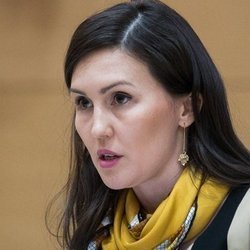Realnoe Vremya Analytics: why state regulation of food prices impossible in Russia
Farmers are against restraining food prices and insist on targeted support for the poor
The heads of the federal ministry of agriculture, the ministry of economic development and the ministry of industry and trade presented their proposals to the Russian government on measures to curb food prices on 14 December. This order was given by Prime Minister Mikhail Mishustin after President Vladimir Putin criticised the Cabinet of Ministers for inaction in the situation with the sharply increased price of basic food products — and even on the eve of the New Year. Realnoe Vremya analysed why experts believe that officials have chosen the wrong way to solve the problem, how the situation with prices is developing in Tatarstan, and what measures could be most effective.
Unacceptable growth
During the meeting on economic issues last Wednesday, Russian President Vladimir Putin drew attention to the unacceptable increase in prices for basic food products. It was about sugar, sunflower oil, flour, pasta, bread and bakery products.
Let us note that according to the calculations Rosstat, from January to November, sugar rose by 71,54%, sunflower oil — by 23,78%, pasta — by 10,45%, bread — by 6,34%. Over the past month, these goods on average in the country began to cost by 8,9%, 7,4%, 1,3% and 0,9% more, respectively.
According to the head of the state, the incident “cannot be explained by the pandemic”. The reason is “the dynamics of prices on world markets and an attempt to adjust domestic prices to global ones, as well as to use export opportunities”. The president also asked the head of the ministry of agriculture, Dmitry Patrushev, about the indicators of self-sufficiency in basic products.
“Look, as if we did not succeed, as in the Soviet Union was. Do you remember what they said then? They said: 'In the Soviet Union there is everything, but not enough for everyone'. But then it was not enough, because there was a shortage. But now it may not be enough because people do not have enough money to purchase certain products at the prices that we see on the market," Putin warned.
The meeting of the Russian government, which opened the next day, began with a reprimand from Russia's Prime Minister Mikhail Mishustin. He chastised officials from the FAS, the ministry of industry and trade, the ministry of agriculture and the ministry of economic development because of the rise in food prices, and then demanded to prepare proposals for price restraint by Monday.
“If the president points out to us the current situation, it means that the work of all the structures listed by me and their leaders is failing, which must be eliminated," said the head of the government.
For sunflower oil — no more than 110 rubles, for sugar — no more than 45 rubles
Having received a good shake-up, the head of the federal ministry of agriculture, Dmitry Patrushev, promptly made a statement, assuring that “at present, the ministry, together with the industry community and interested authorities, is working on a set of necessary solutions that will quickly stabilise the situation with prices for basic socially important products”.
“A number of measures have already been taken and their implementation will begin in the near future. For example, starting from January 9, 2021, Russia will introduce a duty on sunflower exports. Thus, we will avoid a shortage of raw materials in the domestic market and provide processors with the necessary volumes of sunflower seeds at affordable prices. <…> The representatives of the sugar industry have already confirmed their readiness to minimise selling prices and prevent their unjustified growth. A similar decision was made by creameries, which already now, preemptively, will begin to reduce prices for their products," the minister reported.
Against this background, Russia began to talk about what decisions can be made in the current situation. For example, it was reported that the authorities have already recommended that businesses adhere to a certain level of retail prices for sunflower oil and sugar: no more than 110 rubles (per liter) and 45 rubles (per kilogramme), respectively. The representatives of industries and retail chains were also allegedly asked to set a wholesale price for oil in the amount of 95 rubles per liter, for sugar — 36 rubles per kilogramme. A number of experts suggest that as early as this week, food producers and retail chains may sign an agreement, agreeing to curb prices.
What happened to prices in Tatarstan
According to official data, in our republic, inflation was 0,8% in November, and 3,9% since the beginning of the year. Last month, food prices increased by 1,5% compared to the previous month, and by 5,2% since the beginning of the year. Non-food products rose by 0,6% in November, since January — by 4,4%. Prices for services increased by 0,2% in November and by 1,5% since the beginning of the year.
The ministry of agriculture and food of the Republic of Tatarstan tried to explain the reasons for the rise in price of products in Tatarstan. It was about the prices of sunflower oil, wheat flour and sugar.
According to Deputy Minister Nail Zalakov, the increase in sugar prices is felt as significant, since last year there has been a sharp drop in wholesale prices to 20 rubles. The maximum wholesale and selling prices in 2020 were at the level of 44 rubles per kilogramme, now prices are falling. In order to avoid such situations in the republic next year, it is planned to increase the acreage to 54,000 hectares.
Sunflower oil has risen in price due to a shortage of raw materials on the Russian market and an increase in purchase prices for oilseeds. The average wholesale selling price for the first time in this period increased to 80,7 rubles/kg without VAT.
The increase in flour prices is also associated with an increase in grain prices — prices for third-class wheat increased by 33%, for flour — by 23%. To hold the sharp increase in the price of bread, the republic allocates subsidies for compensation of losses to bakery enterprises. However, the latter this year still increased the cost of their products, as a result the Federal Antimonopoly Service of the Republic of Tatarstan is now engaged in the situation.
As the head of the press service of the President of Tatarstan, Lilia Galimova, told Realnoe Vremya, Rustam Minnikhanov keeps the issue of food prices under control and “regularly receives another statistics”, while he objectively does not have the authority to issue any instructions or orders in terms of pricing, since this area is regulated by the federal government.

“We support both the person from the Forbes list and a lonely rural resident Baba Manya. This is wrong”
Alexander Korbut, the head of the Department of Legal and Analytical Support of the Russian Grain Union, shared a detailed analysis of what is happening with Realnoe Vremya.
“VAT has been raised, the exchange rate has changed, but the ruble has not strengthened, the entire import component has increased, and it is in almost all food products (genetics, technology, equipment, imported consumables, and so on)," the expert lists the prerequisites for price growth. “We also announced that we have an open market economy that operates in a global world. Accordingly, the global situation has its impact, especially in those markets where we have a fairly high share of exports. This applies to grain and vegetable oil in the first place. The global market in the Covid-19 world has sharply raised the prices of grain and sunflower oil.
Speaking about oil prices, Korbut points to such a factor as a decrease in the gross production of sunflower — our main crop. According to the expert, the production in Russia decreased by more than 2 million tonnes, and the same happened in Ukraine — the other largest exporter of sunflower oil in the world.

Alexander Korbut, as well as previous experts, notes the absence of a deficit in the country and, at the same time, draws attention to the problem of income of the population.
“When almost 20 million citizens have incomes below the subsistence minimum, and the growth of real incomes of the population is not visible, it turns out that more and more people spend a significant part of their income on food. We need to fight not with prices but with low incomes. Yes, it is possible to regulate prices, this is one of the pillars of food security. The physical availability of food is ensured, but the economic one, alas, is getting worse. When the state regulates prices “all over the field”, we will support the entire population of the country: both the person from the Forbes list and a lonely rural resident Baba Manya. This is wrong. Support should concern the poor, those who need it vitally," the expert concludes.
Major retailers, such as Magnit, X5 Retail Group, have not yet commented on the growth of prices for products and the government's decisions to curb them. Responses will be published upon receipt. However, both companies, assessing the scale of the fall in real incomes of Russians, are already launching their own discounters. “The situation in the country will only get worse," said Igor Shekhterman, the executive director of X5.
It is going to take a long time for real incomes of Russians to restore after the coronacrisis, experts say. Therefore, the winner will be the business that focuses on low incomes of the population.